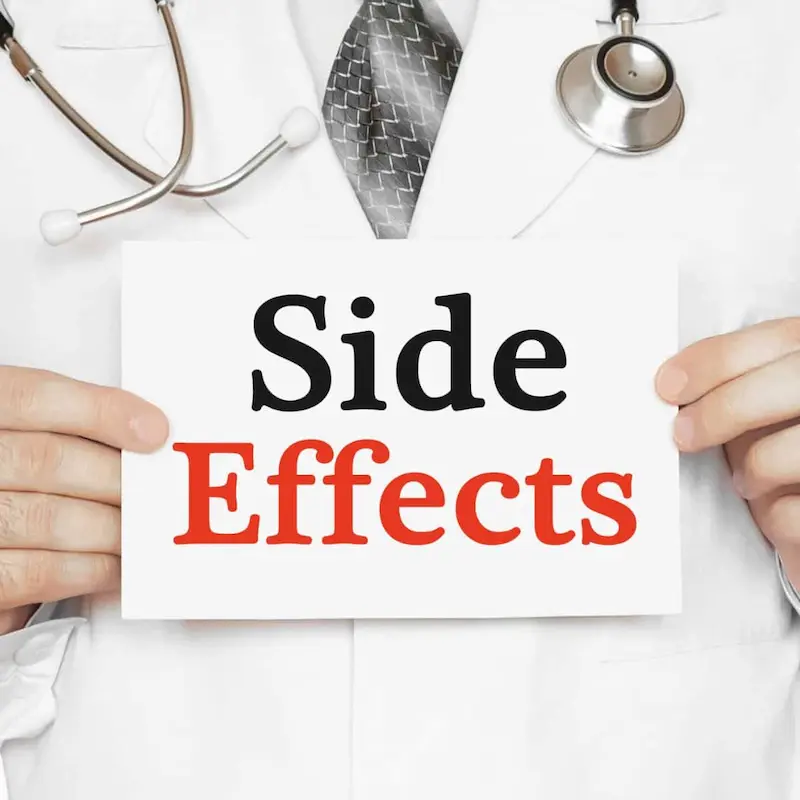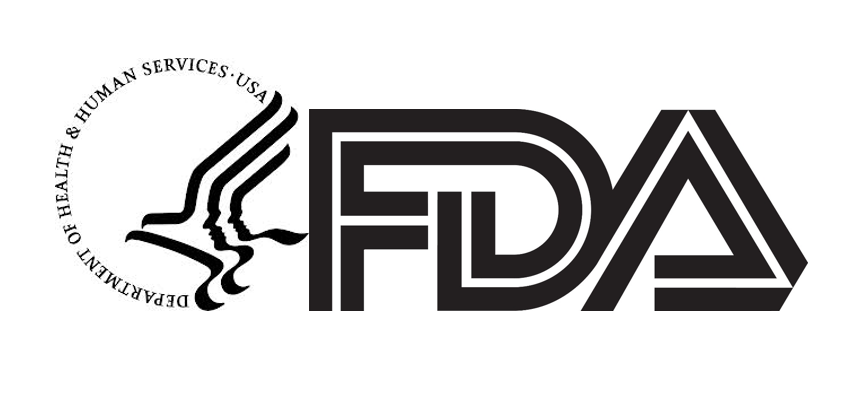Testosterone, commonly associated with men, is a vital hormone in women’s health as well. While women produce it in smaller quantities, its role in their bodies is significant. It affects various aspects of health, including libido, energy levels, and muscle strength. Despite its importance, the topic of testosterone in women is not as widely discussed or understood as its role in men.
Recent developments in medical science have highlighted the potential clinical applications of testosterone therapy for women. This therapy may offer benefits for conditions such as sexual dysfunction, and its use is being explored in the context of menopausal symptoms and certain hormonal disorders. However, like any medical treatment, testosterone supplementation comes with its own risks and side effects.
Quick Summary
- Testosterone plays a crucial role in women’s health, influencing libido, energy, and muscle strength.
- Testosterone therapy may benefit women with specific health conditions, including sexual dysfunction and hormonal disorders.
- While potentially beneficial, testosterone supplementation has associated risks and side effects that need consideration.
Fundamentals of Testosterone for Women

Testosterone is often recognized as a male hormone, but it is also produced in the female body. It plays a crucial role in women’s health, but at lower levels than in men. Women’s ovaries and adrenal glands produce testosterone, which works in concert with estrogen, a female hormone. Testosterone levels in women help regulate libido, mood, and muscle mass.
In terms of hormonal balance, testosterone is considered an androgen, one of the male sex hormones that are present in women in smaller quantities. The presence of androgens is critical for normal female sexual development and functioning. Additionally, testosterone contributes to:
- The production of new blood cells
- The enhancement of cognitive functions
- The sustenance of bone density
For women, hormone levels fluctuate over time and can be affected by age, menstrual cycle, and menopause. The balance between testosterone and estrogen is vital for the overall health of females. Disruption in this balance might lead to various symptoms like fatigue, weight gain, or reduced libido.
The measurement of testosterone in the female body is done through blood tests. Guideline levels are below:
- Pre-menopausal women: 15 – 70 ng/dL
- Post-menopausal women: 5 – 71 ng/dL
Understanding testosterone levels is important for pinpointing potential health issues. Low levels might be connected to bone density problems, while high levels could indicate polycystic ovary syndrome (PCOS). Health professionals often address hormone-related concerns with a blend of lifestyle changes and medical interventions.
Clinical Applications of Testosterone Therapy for Women

Testosterone therapy has specific clinical applications for women, especially in managing menopause-related symptoms, addressing hypogonadism, and determining the particulars of testosterone treatments.
Menopause and Postmenopausal Health
For many women, menopause and the postmenopausal period are marked by a decline in testosterone levels, which can lead to symptoms such as reduced libido and vaginal dryness. Testosterone therapy has been used to alleviate these symptoms. Gynecologists may prescribe testosterone in the form of gels, creams, or even pellets that are inserted subcutaneously. Studies have shown that such treatments can effectively enhance sexual function and overall postmenopausal health.
Hypogonadism and Ovarian Function
Hypogonadism in women, a condition characterized by low sex hormone levels, can result from a variety of causes including oophorectomy (surgical removal of the ovaries). In these cases, testosterone treatment serves to restore deficient hormone levels and can be critical in managing symptoms like sexual dysfunction. Injections and oral preparations are another form of testosterone therapy that can be utilized, depending upon individual patient needs and the specifics of their condition.
Specifics of Testosterone Treatments
Choosing the appropriate form of testosterone therapy requires consideration of the patient’s unique situation. Testosterone pellets provide a steady hormone level and can last several months, while other methods like creams or gels offer more control over daily dosing. Prescriptions should be individualized, and therapy should be monitored regularly to ensure optimal testosterone levels and minimize potential side effects.
References
Benefits of Testosterone Supplementation in Women

Testosterone supplementation can offer a range of benefits for women, particularly when levels are low due to menopause, surgical removal of the ovaries, or other health conditions. Below is an outline of the potential benefits:
Mood and Cognition: Studies suggest that testosterone can improve mood and reduce feelings of depression and anxiety. Women may also experience enhancements in cognition, including better memory and mental clarity.
Bone Density: Supplementing with testosterone has been shown to increase bone density, which is crucial in reducing the risk of osteoporosis, especially post-menopause.
Muscle Mass and Strength: Testosterone plays a crucial role in building muscle mass and strength, which can aid women in maintaining a healthy body composition and physical function.
Energy: An increase in energy levels is often reported, allowing women to engage more in daily activities and exercise.
Sexual Function: Testosterone is intrinsic to sexual health. It can increase libido, sexual function, and overall sex drive in women experiencing low levels.
Summary Table of Benefits:
| Benefit | Description |
|---|---|
| Mood | Reduction in depression and anxiety. |
| Cognition | Improvements in memory and mental clarity. |
| Bone Density | Increased bone density, decreased risk of fractures and osteoporosis. |
| Muscle Mass | Enhanced muscle mass and strength. |
| Energy | Heightened energy levels and vitality. |
| Sexual Function | Boosted libido, improved sex drive, and better sexual satisfaction. |
It is essential for women considering testosterone supplementation to do so under the guidance of a healthcare professional.
References
Risks and Side Effects of Testosterone for Women

Testosterone therapy for women, while less common than for men, can present several risks and side effects. One must weigh these against the potential benefits of treatment.
Risks and Side Effects Include:
- Acne and oily skin: Testosterone can increase skin oil production.
- Masculinization: Symptoms such as hirsutism (excess hair growth), voice deepening, and clitoral enlargement may occur.
- Blood: Changes in cholesterol levels and increased red blood cell count can affect cardiovascular health.
- Liver: Oral testosterone supplements may increase the risk of liver toxicity.
A woman’s safety profile for testosterone therapy must be closely monitored. Blood tests are often recommended to track hormone levels and liver function.
Potential Long-Term Risks:
- Breast cancer: The relationship between testosterone therapy and breast cancer risk remains unclear.
- Low testosterone: Paradoxically, excess testosterone can sometimes lead to lower natural testosterone levels upon discontinuation of therapy.
In summary, one should consider the risks of lowering or increasing testosterone levels. Before initiating therapy, a healthcare provider must conduct a thorough evaluation. Dexa scans or other evaluations to monitor bone health may be essential if testosterone is used to counteract low levels associated with osteoporosis.
Understanding Androgens and Testosterone

The significance of androgens, particularly testosterone, extends beyond their well-known roles in male physiology, and into critical functions in female health.
Androgen Hormone Basics
Androgens are a group of sex hormones that are present and biologically important in both men and women. The primary and most well-known androgen is testosterone. These hormones are largely produced in the testes in males and the ovaries in females, with a smaller amount being produced in the adrenal glands, which are located on top of the kidneys. They are instrumental in developing male traits and reproductive activity but are also important in female health, influencing bone density, muscle strength, and libido.
- Location of Androgen Production:
- In males: Testes
- In females: Ovaries
- Adrenal glands: Both sexes
Testosterone’s Role Beyond Reproduction
While testosterone is often associated with male development and sexual function, its role in females is equally important. In females, testosterone is essential for the maintenance of muscle and bone mass, and it plays a pivotal role in the overall energy levels. Moreover, it contributes to cognitive health and the prevention of osteoporosis. Imbalances in testosterone levels can lead to various health issues such as sexual dysfunction, bone weakness, and muscle wasting.
- Important Functions of Testosterone in Females:
- Maintenance of bone density
- Maintenance of muscle mass
- Regulation of libido
- Impact on mood and energy levels
References
- The role of androgens in female health and disease: https://www.ncbi.nlm.nih.gov/pmc/articles/PMC2190742/
- Adrenal gland androgens: https://www.yourhormones.info/glands/adrenal-glands/
Treatment Management and Lifestyle

In the context of testosterone therapy for women, management and treatment must be personalized and periodically evaluated, while lifestyle alterations can significantly complement the therapeutic effects.
Monitoring and Maintenance
Treatment management for women receiving testosterone therapy includes regular monitoring of hormone levels. Patients typically undergo diagnostic blood tests to measure testosterone and other hormone levels. These tests are crucial to adjusting dosages to achieve an optimal therapeutic effect tailored to individual needs. As women age, their hormone levels naturally fluctuate, and the management of treatment may require changes to maintain hormone balance.
Regular assessments should be carried out every six months to monitor the therapy’s efficacy and any side effects. Additionally, healthcare providers must evaluate the body’s physiologic response to treatment by keeping an eye on indicators such as body fat percentage and muscle mass, as changes in body composition can be a result of alterations in androgen levels.
Aligning Treatment with Lifestyle
For women undergoing testosterone therapy, lifestyle changes are often recommended to support treatment outcomes. Integrating exercise into one’s routine is important and can help in maintaining a healthy weight, as excess body fat can influence hormone levels. A balance of strength training and cardiovascular workouts is usually advised as it can enhance muscle strength and promote weight loss where necessary.
Adjusting dietary habits plays a pivotal role in the overall effectiveness of testosterone therapy. Nutrition should focus on a balanced intake that supports overall hormone health. It is critical for patients to understand that lifestyle adjustments, such as reducing stress and ensuring sufficient sleep, in tandem with medical treatment, can significantly improve the management of symptoms related to low testosterone levels.
Testosterone’s Impact on Women Health Conditions

Testosterone is a critical hormone in women, not only for sexual development and function but also for overall health. In females, the hormone is produced in the ovaries, adrenal glands, and peripheral tissues. It plays a significant role in various bodily functions but abnormal levels can lead to health problems.
Polycystic Ovary Syndrome (PCOS): Women with PCOS often have elevated testosterone levels, which may contribute to irregular menstrual cycles and infertility. This hormonal imbalance can also cause excess facial and body hair growth (hirsutism), acne, and scalp hair thinning.
Menstrual Cycle and Fertility: Testosterone levels naturally fluctuate during the menstrual cycle, influencing both fertility and sexual behavior. However, abnormally high levels may disrupt the cycle and lead to difficulties with conception.
Osteoporosis Prevention: Adequate testosterone levels are essential for bone density and strength. It helps to protect against osteoporosis, a condition making bones fragile and more prone to fractures.
Fatigue and Blood Pressure: Testosterone influences energy levels, and low amounts could be associated with fatigue. It also plays a subtle role in maintaining normal blood pressure, although this relationship is complex and not fully understood.
Cardiovascular Risks: Testosterone affects cholesterol metabolism, and either high or low levels can impact cardiovascular health. It’s important to note that the relationship between testosterone, cholesterol, and blood pressure requires further study to fully elucidate its nature.
For accurate assessment of testosterone’s impact, blood tests are utilized to measure hormone levels and determine if they fall within a normal range. Managing testosterone levels may involve lifestyle changes, medication, or both, depending on the underlying causes and specific health conditions.

Navigating the regulatory and medical landscape for testosterone use in women necessitates thorough understanding. The FDA has not approved the use of testosterone for treating sexual dysfunction in women, making it important to approach treatment cautiously.
Patients typically require a prescription from a licensed doctor to obtain testosterone. Women considering testosterone therapy should consult healthcare providers who are knowledgeable in this field. Clinical trials and systematic reviews play vital roles in evaluating the benefits and risks of testosterone use in women.
A meta-analysis conducted by the International Menopause Society highlighted the potential of testosterone therapy in improving sexual function, mood, and muscle strength among women post-menopause. Conversely, testosterone therapy might impact cholesterol levels and cardiovascular health, which necessitates a thorough assessment by healthcare providers.
Compounding pharmacies are an option for obtaining customized dosages as per an individual’s need when standard preparations are not available. These pharmacies adhere to guidelines set for compounded medications and are regulated by state boards.
The Mayo Clinic recommends that women considering testosterone therapy should have their hormone levels monitored regularly by a healthcare professional.
Key Takeaways:
- FDA: No approval for testosterone in women’s sexual dysfunction.
- Prescriptions: Necessary for testosterone, should be provided by knowledgeable doctors.
- Clinical Trials: Essential for evaluating testosterone therapy’s effect on women.
- Cholesterol Monitoring: Necessary due to the potential effects of testosterone on cardiovascular health.
Hormonal Changes Throughout a Woman’s Life

Hormonal fluctuations are a constant throughout a woman’s life, influencing growth, mood, and overall well-being. In the stage of puberty, estrogen and testosterone levels increase, contributing to growth and playing a critical role in the development of secondary sexual characteristics.
During reproductive years, hormones like estrogen, progesterone, and small amounts of testosterone regulate the menstrual cycle, fertility, and sexual function. Some women may experience hypoactive sexual desire disorder (HSDD), where there’s a persistent lack of sexual interest causing distress, which can be related to hormonal imbalances.
In midlife, as women approach menopause, fluctuations in hormone levels become increasingly pronounced. Estrogen and testosterone levels decline, which may result in symptoms like mood swings, sexual dysfunction, and changes in sexual desire.
For postmenopausal women and those going through aging, the decreased production of sex hormones can lead to significant challenges, including osteoporosis, cardiovascular health issues, and the continuation of sexual dysfunction. Testosterone levels, albeit already low in women compared to men, can decline further and contribute to these changes.
Administration of transdermal testosterone has been studied as a therapy for HSDD in postmenopausal women, providing an alternative method to maintain hormone levels for managing sexual desire and function.
References
- “Hypoactive Sexual Desire Disorder: International Society for the Study of Women’s Sexual Health (ISSWSH) Expert Consensus Panel Review”, https://www.ncbi.nlm.nih.gov/pmc/articles/PMC5147922/
- “Menopause and Midlife Health Changes”, https://www.womenshealth.gov/menopause/menopause-and-your-health
- “Transdermal Testosterone Treatment in Women with Impaired Sexual Function After Oophorectomy”, https://www.nejm.org/doi/full/10.1056/NEJMoa013424
Frequently Asked Questions

Testosterone therapy in women is utilized for certain medical conditions but comes with a need for understanding its benefits and possible side effects. Here are some of the most common questions about the topic.
What are the potential risks and side effects associated with testosterone therapy in women?
How can testosterone supplementation benefit women’s health?
What is considered a low dose of testosterone for females, and what are its implications?
Can testosterone treatments assist in weight loss efforts for women?
What changes can a woman expect after starting testosterone supplements?
How can a woman identify signs of low testosterone levels?
References
Dr. Grant Fourie, a specialist in male hormones, is based in Cape Town, South Africa. He provides comprehensive treatments for conditions related to low testosterone, such as erectile dysfunction, fatigue, and mood changes. His methods include hormone replacement therapy and other modern treatment options.
Contact me via email or phone to book personal appointment in my clinic: The Village Square, Cape Town - South Africa



